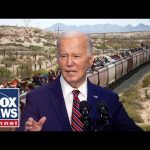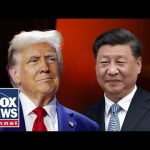The Trump administration is making decisive moves to steer the American economy back on course, prioritizing the interests of American workers, families, and taxpayers. With more than ten promising trade deals reportedly in the works, President Trump’s team is leveraging tough tariff policies to bring foreign competitors to the negotiating table. The administration’s America First agenda is clear: reduce trade deficits, bring manufacturing jobs home, and restore fairness to a global system that has long disadvantaged the United States. The President’s recent 10% blanket tariff on all imports, coupled with even higher rates on countries like China, is already sending a message that America will no longer tolerate one-sided trade relationships.
While these bold trade actions are generating optimism in many sectors, especially among manufacturers and those who have seen their jobs shipped overseas, there’s no denying that small businesses face unique challenges in this new landscape. Many small business owners have expressed concerns about regulatory burdens and the perception that large corporations receive preferential treatment. However, the administration is actively rolling back unnecessary regulations and inviting public input on deregulatory efforts, aiming to level the playing field for entrepreneurs and Main Street businesses. The White House has emphasized that these reforms are designed to empower small businesses, reduce red tape, and foster a more competitive environment for all American enterprises.
Despite some hand-wringing from critics and the usual suspects in the media, the administration’s approach is grounded in common sense. For too long, taxpayer dollars have been funneled into programs and institutions that promote a left-wing agenda, such as NPR and PBS. The proposed $9.3 billion in budget cuts—including the elimination of federal funding for these public broadcasters—demonstrates a commitment to fiscal responsibility and the elimination of wasteful spending. It’s about time that taxpayer money stopped subsidizing outlets that consistently push progressive propaganda under the guise of news and children’s programming.
The Trump administration’s efforts to streamline government don’t stop with public broadcasting. Plans are underway to shrink the bloated federal workforce, cut bureaucratic bloat, and ensure that government agencies focus on core functions that actually serve the American people. By limiting hiring and consolidating agencies, the administration is working to create a leaner, more efficient government—one that is accountable to the taxpayers and not beholden to entrenched interests or unaccountable bureaucrats.
In the end, the American economy is at a crossroads. The President’s policies offer a real opportunity to restore economic strength, reward hard work, and ensure that America remains a beacon of prosperity. While the road ahead may not be easy, especially for small businesses adapting to a changing environment, the administration’s commitment to putting America first is unwavering. By standing up to foreign competitors, cutting wasteful spending, and empowering American businesses, the Trump administration is laying the groundwork for a stronger, more resilient economy—one that works for all Americans, not just the elite or the well-connected.




